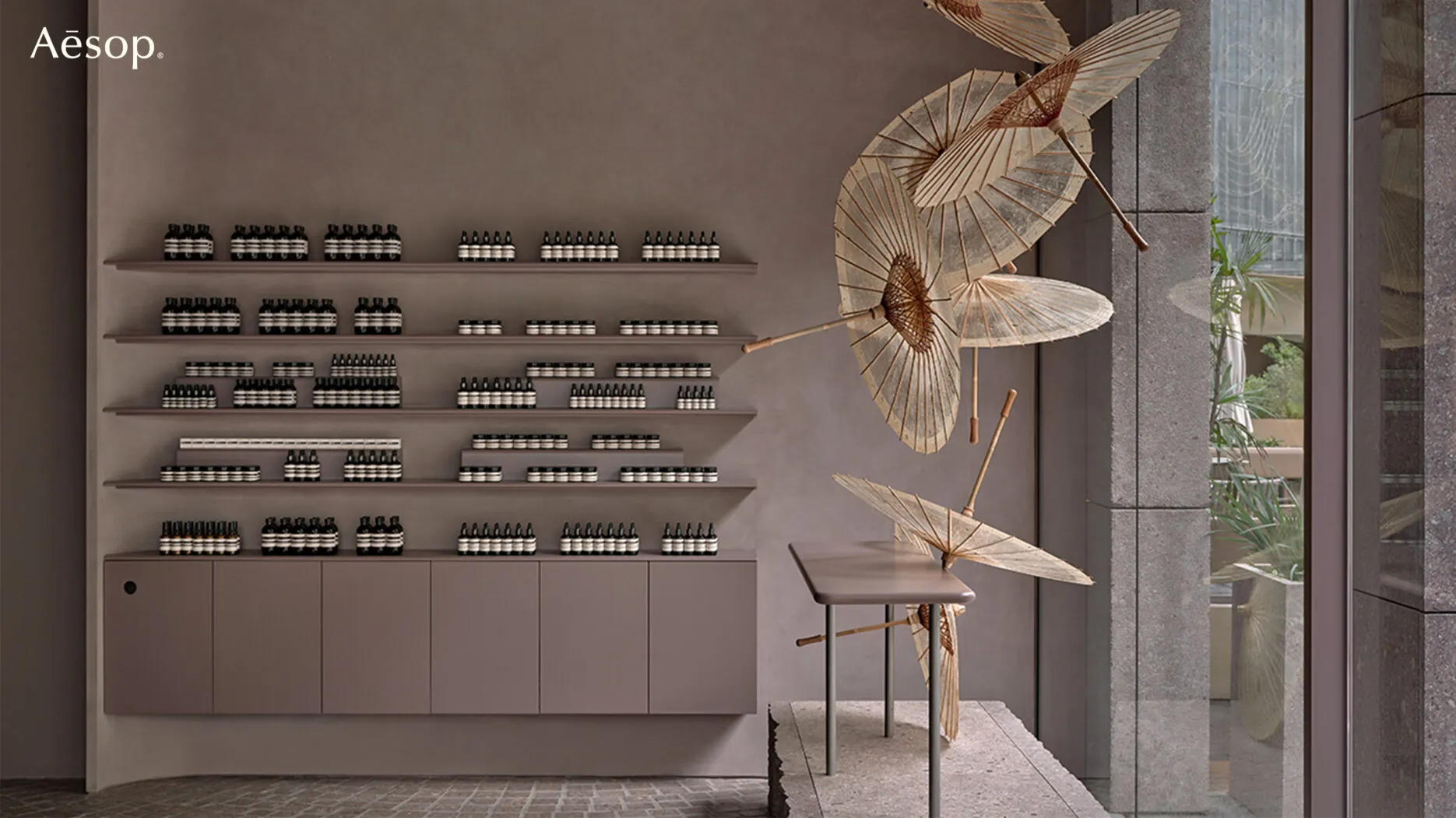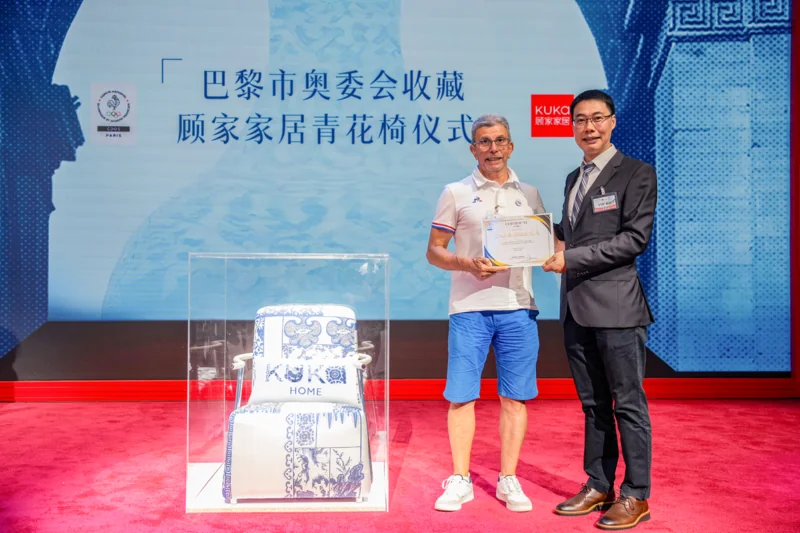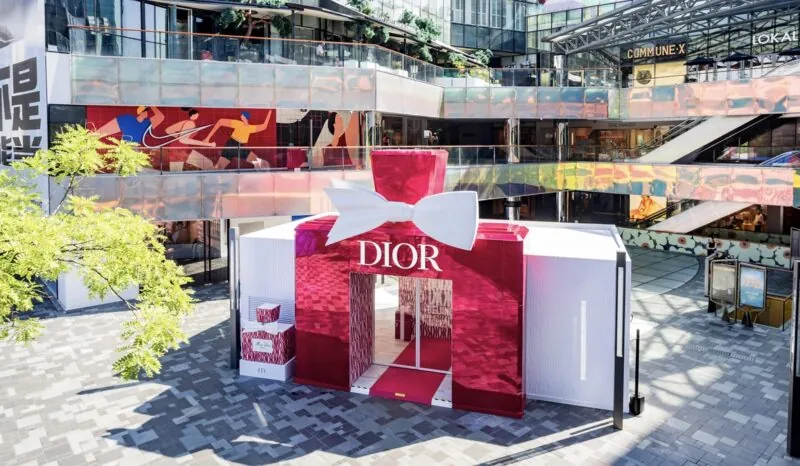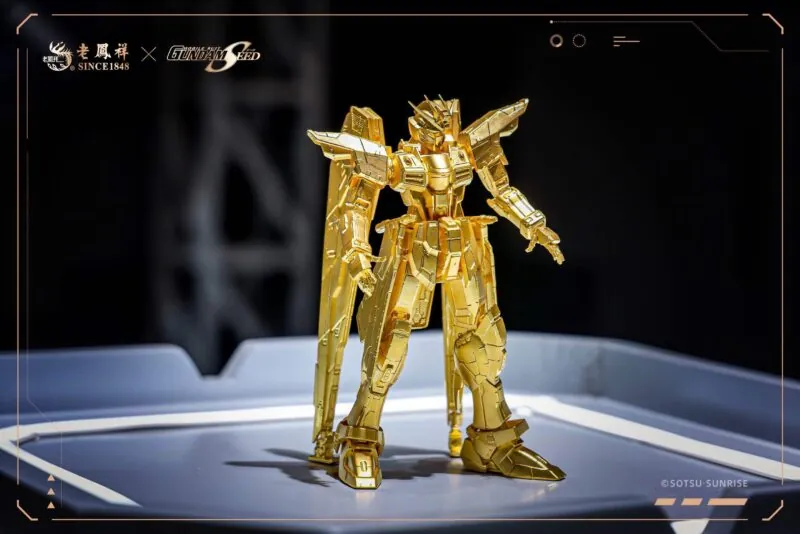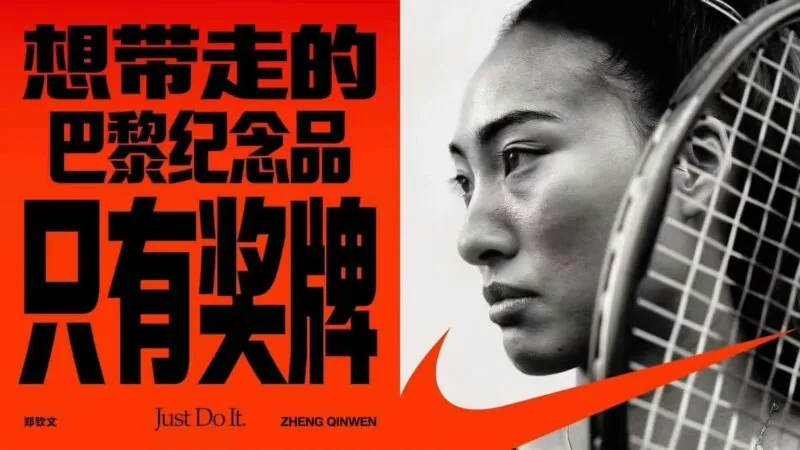Three months after Aesop opened its pop-up store in a siheyuan courtyard in Beijing, the Australian luxury skincare and fragrance brand opened several new stores across Chengdu, Guangzhou, Beijing and most recently in Hangzhou. The first three all have impressively themed interiors, taking inspiration from classic science fiction, recycling and the Great Wall of China, respectively. However, the latest Hangzhou store feels more like a full-scale concept store with its interior and exterior design and themed installations.
Opened on 31 July, the Hangzhou branch of Aesop is located in the MixC mall near the bank of the Qiantang River. Aesop collaborated with the architecture agency Atelier Suasua to design the hyper-localised store drawing inspiration from bridges, a common occurrence in the city of Qiantang and West Lake. The ground floor shop also includes a large yard where the brand and the designers used stones from the nearby Jizhu county and local flora to decorate. The indoor space is also decorated with stones.
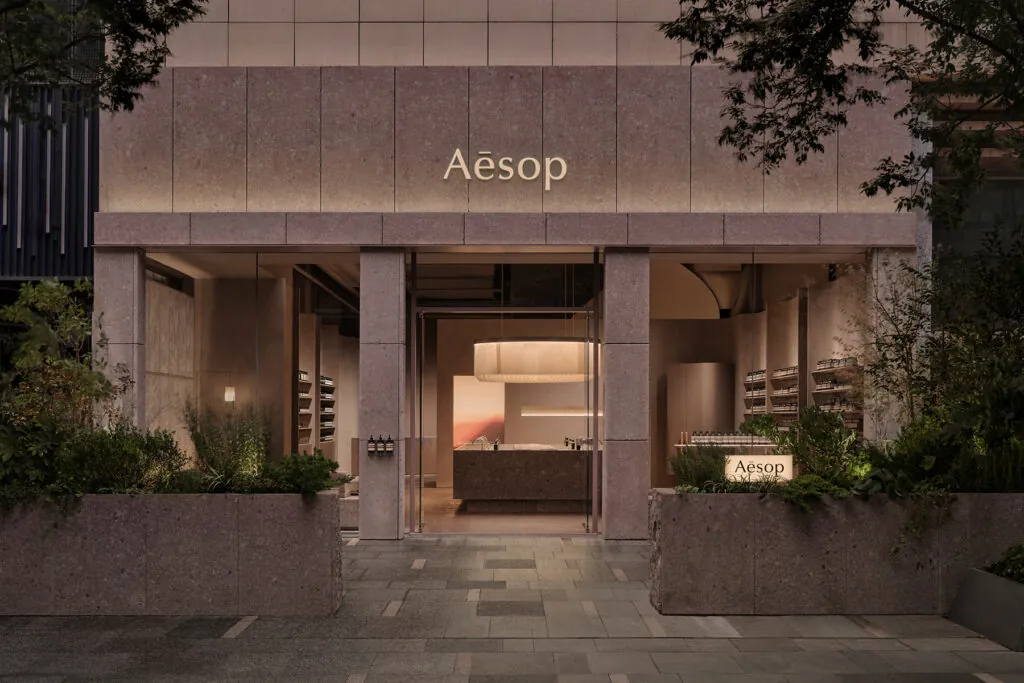
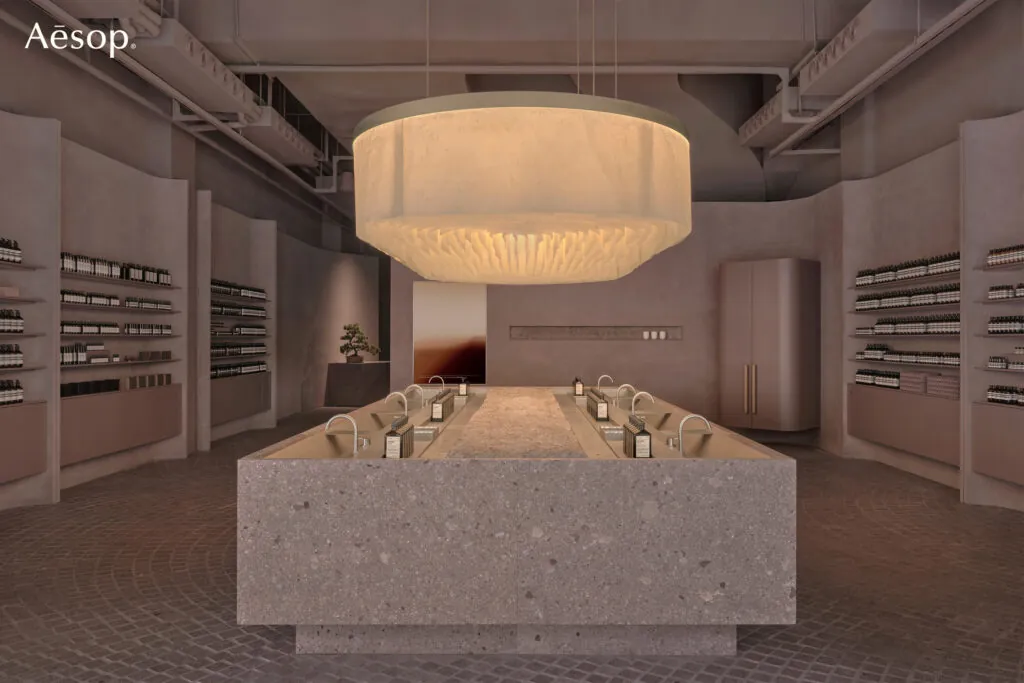
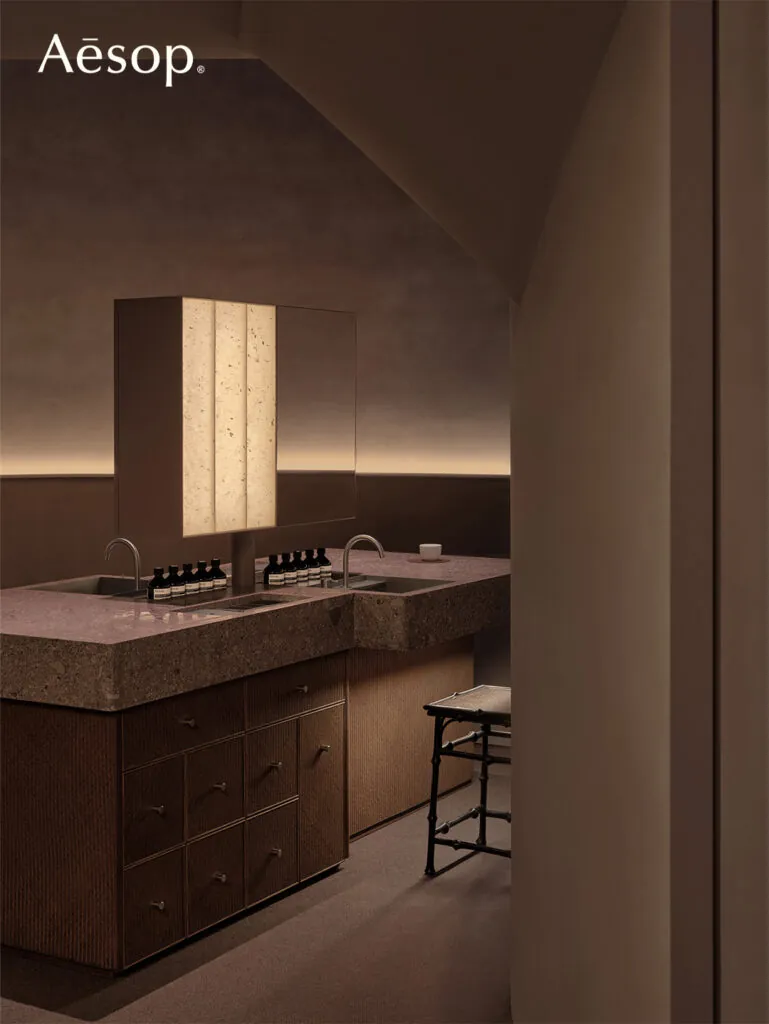
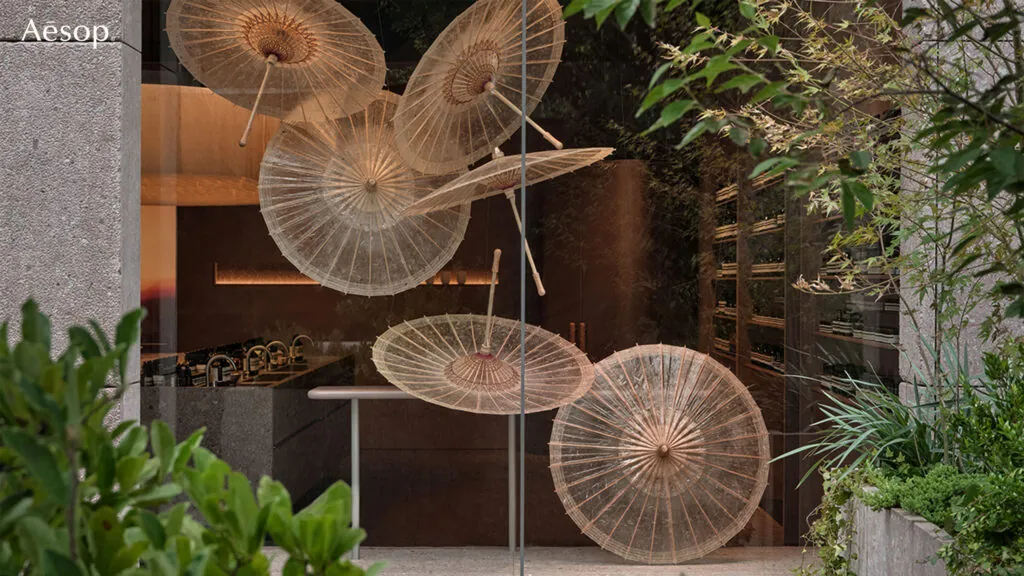
Another motif is traditional oil-paper umbrellas. These umbrellas are a scenic feature of the rainy season in the Jiangnan region. Not only does the shop feature an installation made with multiple umbrellas, but the large central pendant light is a lantern covered with the oil paper used to construct the umbrellas with added Longjing tea leaves. On 2 August, Aesop announced that it would feature umbrella artisans to perform traditional oil-paper umbrella-making in-store until 4 August, with 3 sessions a day.
On Weibo, China’s Twitter equivalent, the topic “Aesop new store” has accumulated 7.05 million views. Aesop has attracted a steady following with its hyperlocal design and cultural relevance. Not only do the interiors of their shops take inspiration from the Chinese culture and the city they are in (Chengdu is often called the capital of sci-fi in China if you’re wondering). Its products have also evolved to incorporate Chinese elements. For example, as the popularity of Chinese incense sticks grew, the Australian brand also brought out three incense sticks of its own. It is inspiring to see a global lifestyle brand adapt to the unique market in China, in the time of the third wave of guochao and competing with Chinese brands such as To Summer and Documents, both of whom receive funding from Aesop’s parent group L’Oréal.




